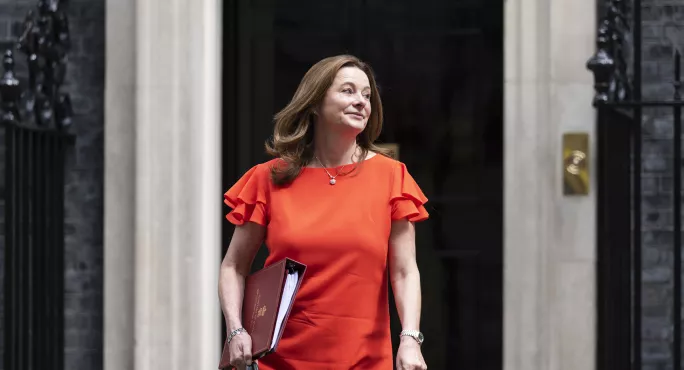Pupil absences are at “crisis” level, the education secretary has said, as she endorsed headteachers driving children to school if necessary.
Gillian Keegan told Sky News this morning that headteachers had a “duty” to get children to school.
Figures released earlier this year showed that around 125,000 pupils last year were severely absent, effectively meaning they were absent more often than they were in classrooms.
Ms Keegan, who rejected the suggestion that the government did not have a grip on the problem, was asked about examples of headteachers driving to children’s homes to pick them up and bring them to school.
“They have a duty,” she said. “We all have to play our part. I have a number of headteachers who work with me on policy and sometimes you just have to do that - sometimes you have to go or you have to text the parent in the morning…you do whatever is possible.”
Pressed on whether that was a good use of headteachers’ time, Ms Keegan said: “It is a good use to have all kids in school.
“That’s not what we want headteachers doing all of their days. But to be honest, right now, if that works to get somebody in school, it’s worth it.”
Her comments have been criticised by headteachers’ leaders this morning.
James Bowen, assistant general secretary of the NAHT school leaders’ union, said: “These comments are unhelpful and demonstrate a worrying lack of understanding of how schools operate.
“School leaders quite obviously need to be in school leading their schools - asking them to drive around the local area collecting children is not practical, nor would it be a good use of their time.
“For many years schools had local authority teams employed to do exactly this job, but we have seen them largely disappear after a decade of cuts.
“While schools clearly have an important role to play in supporting good attendance, we should not lose sight of the basic reality that bringing children to school on time is the role of parents.”
Last month, the children’s commissioner for England warned that the “crisis of attendance” is the “biggest problem” facing education policymakers and schools, but it is “becoming normalised”.
Dame Rachel de Souza also called for a national campaign to fix attendance, warning that barriers such as pupils’ special educational needs and anxiety are preventing them from returning to school.
Last month, prime minister Rishi Sunak said that children missing school was a “tragedy” and “incredibly damaging for educational outcomes”.




